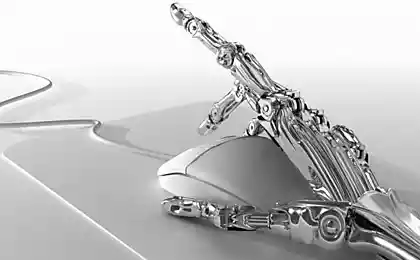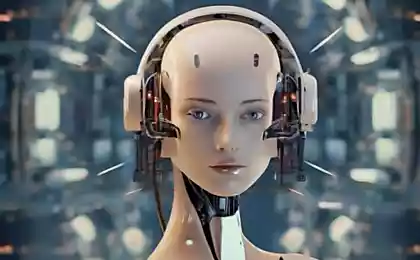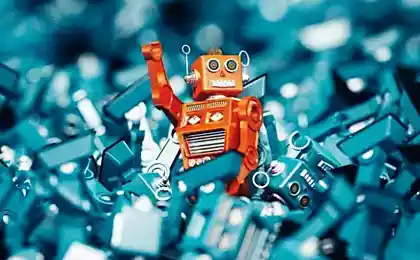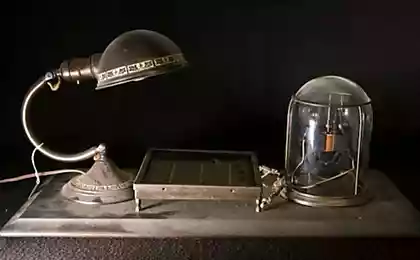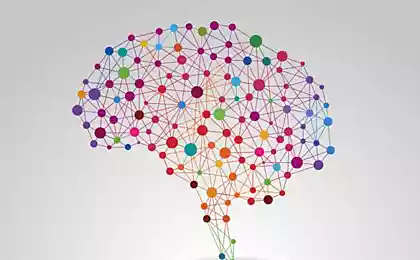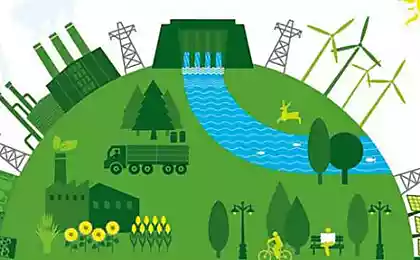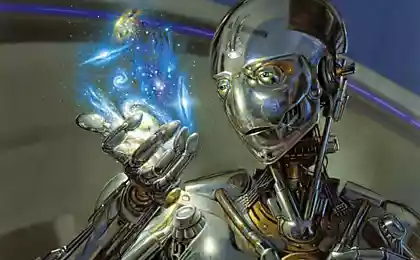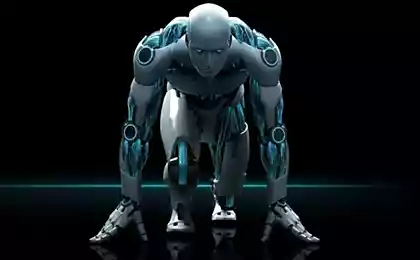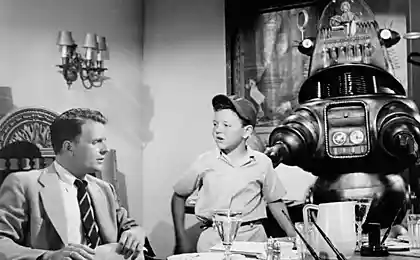489
What are the similarities of artificial intelligence and electricity
What first comes to mind when you hear "artificial intelligence"? Educated several generations of Hollywood movies, we often think about "evil robots and intelligent computers that want to destroy humanity".
But the AI already plays an active role in our daily life, and his opportunities will only increase from now on. To alleviate anxiety, which will accompany the advent of AI in our world, editor of Wired, Kevin Kelly suggested that we change their thinking and attitude towards artificial intelligence.
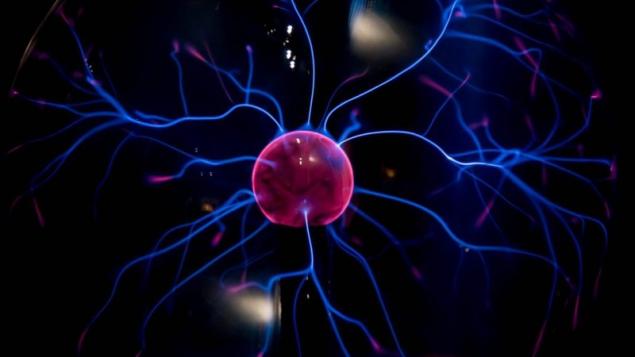
Kelly thinks that the word "intelligence" has assumed the excessive baggage, including a few negative. If it is used without regard to the human mind, the word "intellect" (intelligence) is inevitably associated with espionage, confidential information or invasion of privacy.
Since the applications of artificial intelligence goes far beyond this, and we may not be able to implement the new definitions for old words, why not use instead the new words?
The word, which suggests to use the Kelly, it's granting the ability to learn, "magnificate" — cognification — and he uses it to describe the "clever" things.
At the moment, not many things were cognitition: phones, cars, thermostats, TVs, but with them coming and others. But in the future, says Kelly, all that was already electrified, will cognititive. A smart home? Smart offices? Smart city? Only need to wait.
Magnificatio things can be considered similar to the electrification of the things that happened during the industrial revolution.
The industrial revolution undertook a massive transition from an agricultural world where all that was done was done by the muscle power to mechanized world, where an artificial force is almost all things gave gasoline, steam engines and electricity. We created a power grid to distribute this energy, to have access to it on demand anytime and anywhere, and all that would require the application of natural forces, could be carried out with artificial forces.
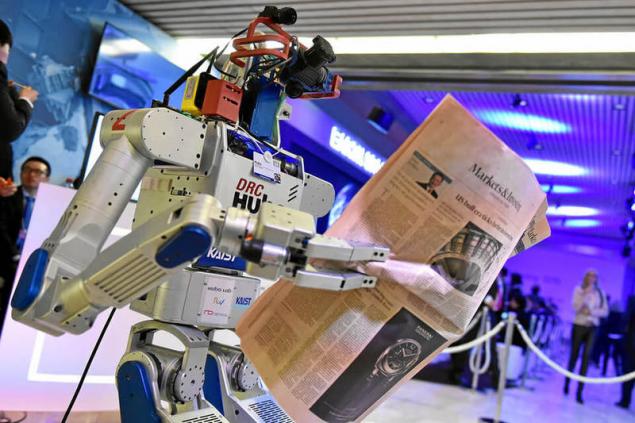
Movement and transport, among other things, increased significantly due to this new strength. Kelly gives the example of a car that is simple but compelling: you invoke the power of 250 horses, just turning the key. Hit foot on the accelerator and your vehicle will travel at a speed of 100 kilometers per hour, which was unthinkable for those times when everything we did, we did with his bare hands.
The next step is to take the car which already has an artificial force of 250 horses, and add a force of 250 artificial minds. The result? Self-driving cars that can not only go fast but also to make independent decisions, to take us to destinations and reduce the risk of fatal incidents.
According to Kelly, we now stand on the threshold of another industrial revolution. As it unfolds, we will take everything that once electrified, and we were going to magnificient.
Imagining life before the industrial revolution, we wonder how it was possible to live without electricity. We think, as well, that today we have light planes and email. Well, we stopped using candles, ride on carriages and to write letters by hand. However, this does not absolve us of our nostalgia for these simple things.
What people will think in 200 years? Once everything is known, and the world will become one big smart bubble, people will miss the "simpler times" in which we live now, but wonder: how did we live without the omnipresent AI? published
P. S. And remember, only by changing their consumption — together we change the world! ©
Source: //hi-news.ru/research-development/v-chem-sxodstvo-iskusstvennogo-intellekta-i-elektrichestva.html
But the AI already plays an active role in our daily life, and his opportunities will only increase from now on. To alleviate anxiety, which will accompany the advent of AI in our world, editor of Wired, Kevin Kelly suggested that we change their thinking and attitude towards artificial intelligence.

Kelly thinks that the word "intelligence" has assumed the excessive baggage, including a few negative. If it is used without regard to the human mind, the word "intellect" (intelligence) is inevitably associated with espionage, confidential information or invasion of privacy.
Since the applications of artificial intelligence goes far beyond this, and we may not be able to implement the new definitions for old words, why not use instead the new words?
The word, which suggests to use the Kelly, it's granting the ability to learn, "magnificate" — cognification — and he uses it to describe the "clever" things.
At the moment, not many things were cognitition: phones, cars, thermostats, TVs, but with them coming and others. But in the future, says Kelly, all that was already electrified, will cognititive. A smart home? Smart offices? Smart city? Only need to wait.
Magnificatio things can be considered similar to the electrification of the things that happened during the industrial revolution.
The industrial revolution undertook a massive transition from an agricultural world where all that was done was done by the muscle power to mechanized world, where an artificial force is almost all things gave gasoline, steam engines and electricity. We created a power grid to distribute this energy, to have access to it on demand anytime and anywhere, and all that would require the application of natural forces, could be carried out with artificial forces.

Movement and transport, among other things, increased significantly due to this new strength. Kelly gives the example of a car that is simple but compelling: you invoke the power of 250 horses, just turning the key. Hit foot on the accelerator and your vehicle will travel at a speed of 100 kilometers per hour, which was unthinkable for those times when everything we did, we did with his bare hands.
The next step is to take the car which already has an artificial force of 250 horses, and add a force of 250 artificial minds. The result? Self-driving cars that can not only go fast but also to make independent decisions, to take us to destinations and reduce the risk of fatal incidents.
According to Kelly, we now stand on the threshold of another industrial revolution. As it unfolds, we will take everything that once electrified, and we were going to magnificient.
Imagining life before the industrial revolution, we wonder how it was possible to live without electricity. We think, as well, that today we have light planes and email. Well, we stopped using candles, ride on carriages and to write letters by hand. However, this does not absolve us of our nostalgia for these simple things.
What people will think in 200 years? Once everything is known, and the world will become one big smart bubble, people will miss the "simpler times" in which we live now, but wonder: how did we live without the omnipresent AI? published
P. S. And remember, only by changing their consumption — together we change the world! ©
Source: //hi-news.ru/research-development/v-chem-sxodstvo-iskusstvennogo-intellekta-i-elektrichestva.html
Nissan is planning the release of an electric vehicle with a power reserve of about 500 km
"Green cone" processes all types of food waste
